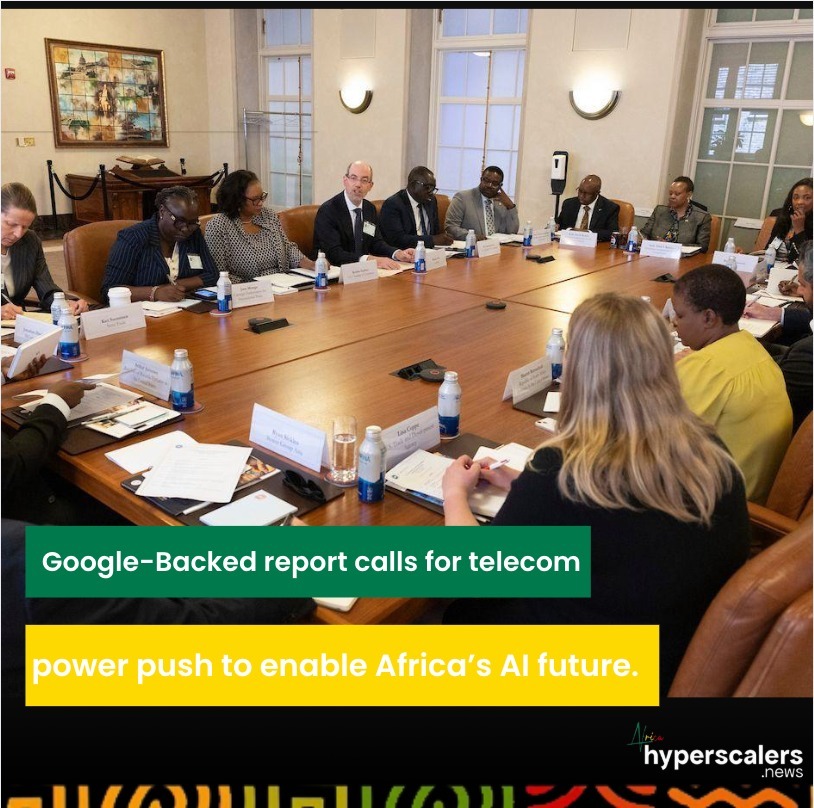At the recent U.S.–Africa Business Center roundtable, co-hosted by Google, diplomats, business leaders, and digital policy experts convened in Washington D.C. to confront a pressing question: What foundational elements must Africa assemble to make AI flourish at scale?
Organized by Kendra Gaither and Guevera Yao of U.S.-Africa Business Center (USAfBC), an initiative of the U.S. Chamber of Commerce, and sponsored by Google, represented by Doron Avni, the event centered on the AI Policy Blueprint for Africa, commissioned from Nextrade Group and led by Dr. Kati Suominen.
Infrastructure takes priority
Silicon alone won’t cut it – new fiber networks, last-mile rural coverage, data centers, and uninterrupted power are essential. The Blueprint highlights digital infrastructure as the first of four pillars for government action.
In addition, expanding energy-as-a-service models via telecom tower companies is essential to ensure data hubs operate reliably, especially in underserved regions.
Pillars beyond connectivity
To enable Africa’s AI transformation, the Blueprint emphasizes four priority areas, that form the backbone of national AI strategies. First is infrastructure: investments in high-speed, reliable connectivity and data centers must be paired with energy infrastructure and robust data backbones. Governments are urged to define AI as a national development priority, promote cloud-first public sector systems, and harness data to improve policy and service delivery.
Second is people. Making all Africans AI-ready requires national skills initiatives, stronger STEM education, and SME skilling campaigns. The Blueprint also calls for bridging market gaps in AI adoption and encouraging corporate governance through global standards like ISO/IEC 42001.
Third, in the realm of technological innovation, the report advocates opening access to non-sensitive datasets, adopting AI in government via cloud-first strategies, and deploying AI sandboxes that help regulators and innovators test ideas safely. It highlights the importance of investing in local startup ecosystems to drive homegrown solutions.
Lastly, under policy, governments are encouraged to create enabling environments by implementing clear, inclusive, and forward-thinking AI strategies aligned with regional frameworks. Responsible governance, data protection, and multi-stakeholder engagement are seen as essential to sustainable AI development.
The Blueprint identified 5 principles for AI adoption:
Aligning Africa’s AI policies with international AI governance
To unlock the full potential of AI, the Blueprint urged that Africa must align its strategies with global standards while developing interoperable regional frameworks. The African Union’s AI strategy emphasizes international collaboration, drawing on work by the OECD, G20, G7, ISO, and NIST. Aligning African AI policies with these global frameworks will boost investor confidence, ease cross-border compliance, and enable local startups to scale globally.
Prioritizing internationally interoperable AI standards
A priority area is the adoption of interoperable AI standards. Africa must develop continent-wide frameworks that also integrate with international norms. The AfCFTA Digital Protocol offers a mechanism to promote convergence in areas like data privacy and cybersecurity, with Regional Economic Communities (RECs) playing a key role in harmonizing standards across borders.
Building and pooling regional AI resources and capabilities
Pooling resources regionally is not only critical but also expedient. Shared AI infrastructure, including data centers, sandboxes, and supercomputing facilities, can lower costs and accelerate innovation. Regional AI development centers and joint research initiatives can attract global partners and foster local talent. Development partners, including multilateral banks and AUDA-NEPAD, are well-placed to support and de-risk these investments.
Institutionalizing multi-stakeholder consultations to futureproof AI
African governments should also institutionalize multi-stakeholder engagement, bringing together policymakers, industry, academia, and civil society to shape national and regional AI strategies. This inclusive approach, informed by international best practices, ensures policies remain adaptive and future-ready.
Establishing and tracking targets for African AI development
Finally, setting clear AI development targets and tracking them through tools like an African AI Readiness Dashboard can help concentrate resources where they’re most needed. Establishing measurable KPIs will support impact assessment, cross-country learning, and evidence-based policymaking to bridge market gaps and ensure inclusive AI growth across sectors like health, education, and agriculture.
Trust, ethics & local data
Trust-building is a high priority: the Blueprint encourages local AI models, ethically grounded systems, and embedding diversity by design. Open government data is promoted, but frameworks must ensure privacy and prevent potential misuse.
Scaling public service innovation
Case studies from Rwanda and South Africa suggest AI can streamline administrative tasks, enhance healthcare, and modernize public services. But meaningful scale requires improved access to local data, ethical models, and empowering African talent.

Participants at the event committed to further stakeholder convenings, leveraging the Blueprint. With momentum from the African Union’s Continental AI Strategy, the UK’s FCDO, Canada’s IDRC, and Google, the report could become a living roadmap updated alongside Africa’s AI adoption rates.
Africa’s AI future depends on foundational infrastructure, digital, energy, human, ethical, and institutional. Digital infrastructure operators have a rare opportunity: by investing in these foundational assets, they can transition from connectivity providers to strategic infrastructure partners on the continent’s AI journey.
AI Solutions Innovation Roadshow – Lagos Edition to spotlight Enterprise Infrastructure for the Age of AI
We are hosting The Vertiv AI Solutions Innovation Roadshow – Lagos Edition, taking place on June 26, 2025. We will be having an exclusive event for C-suite executives and technology leaders to explore the future of enterprise infrastructure in an AI-driven world.
Register here:




